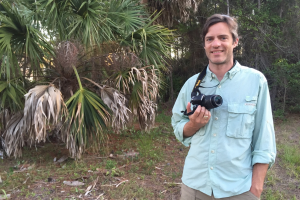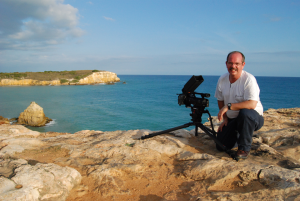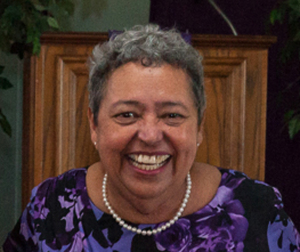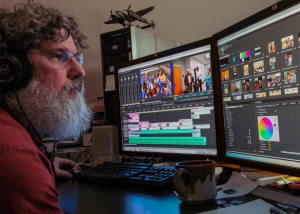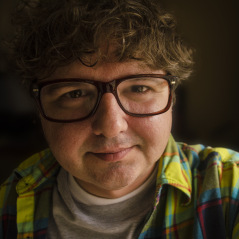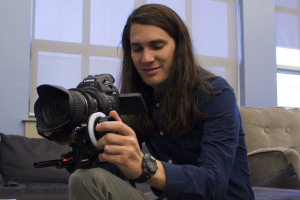New Documentary 'Liberia: An American-African Legacy' to Explore Local Close Ties with Liberia
- TheColumbusite

- Aug 14, 2018
- 7 min read
Updated: Aug 15, 2018
A new documentary from Azilia Films could open the eyes of millions to a largely unknown movement that took place during our country's history. A movement that directly involved Columbus.
The African Republic of Liberia was a colony created by the United States in the early nineteenth century to rehome free American-Africans after the abolishment of slavery. Throughout the entire nineteenth century, Liberia received over 500 emigrants from the Chattahoochee Valley - specifically from Columbus, Ga. and Eufaula, Ala. These post-Civil War Liberian emigrants comprised a total of 12% of all emigrants to Liberia during this time.
Local author and historian Matthew McDaniel first explored the incredible story of our local connection to Liberia while researching his book Emigration to Liberia from the Chattahoochee Valley of Georgia and Alabama. Now, he's teamed up with local film company Azilia Films to produce a documentary illustrating our shared legacy and its effect on our past, present, and future.
Azilia's Project Principals for the documentary include historian Matthew McDaniel, filmmaker Hal Pope, cinematographer Dan Quigley, editor Bob Hovey, historian Jeanne Cyriaque, and graphics specialist Dan Odom. Local actress Vanessa "V.J." Roberts did the voiceover for the trailer, and serves on the project's Advisory Committee.
We recently sat down with some of the Azilia Team to learn more about this fascinating story, why they want to tell it, and what they found as they set out to produce the documentary for public television broadcast.
This interview is the first in a series of four that will be completed as the project progresses.
Future interviews will include conversations with the rest of the project principals, interviews with locals with familial connections in Liberia, and updates on the project's progression.
Follow along in the meantime here.
This conversation has been edited for length and clarity.
All photos courtesy of Azilia Films.

Q: I cannot wait to hear about this story. First, let's talk logistics though. 'Liberia: An American-African Legacy is a project still currently in progress. So, what is your timeline for this project?
A: (McDaniel) That's a great question. We are hopeful that we will go into full production this fall, but it's a not-for-profit project so we are raising funds to produce the film. The sooner we can raise the funds for the project, the sooner we can get deeper into the work. We've had some great success locally with support, but are still raising some funds for production.
We are working on the film now. I've made several trips to Africa, and we have found the folks that we're looking for. But obviously, production is expensive. Our goal would be to produce this fall and spring and then potentially have a film to show next summer. We'll see.
Q: Are you using local people?
A: (McDaniel) Our goal has been to make this as much of a Columbus-based production as possible. We have approached people here first to see what we can accomplish locally before we ask other corporations in Georgia and the southeast.

Q: Mr. McDaniel, you are the historian that discovered this story. How did you find out about this period of American-African emigration?
A: I was at LSU finishing up a masters degree in history. I'd been doing some work in New Orleans, and then we moved here, so I needed to find a local topic to research to finish my thesis. I just needed something closer to home. My good friend Ken Thomas, a historian in Atlanta, had one fragment of a newspaper that mentioned something about an African-American man from Columbus emigrating to Liberia in the late 1800s.
This was right about the dawn of ancestry.com and digital database records. I spent about two weeks in the bottom of the library and found next to nothing. Then, I found out that all of our library's database had been digitized so that I could use a search engine to research. I typed in 'Columbus Liberia' and in a split second I had around 2500 hits.
Q: Are you serious? 2500 hits on an unknown story?
A: (McDaniel) Yes. It turns out there were around 500 people from our community to emigrated to Liberia. That's a significant number. I knew enough about Liberia to know that their architecture was similar to ours. I'm an architectural historian, that's my full time job, so I'd always known about the country - but I didn't know why their architecture was so similar to ours. It's because so many people emigrated from here to there, and built what they'd known here.
Q: Wow. What else did you find?
A: (McDaniel) Well, then Google digitized every book they could find and put it on the web. I found The American Colonization Society's (ACS) records. They were the organization that was primarily responsible for the colonization of Liberia, and they kept pretty darn good records. It just so happened that Google had put them all up while I was doing my research. I found all of the inventory lists from each ship of emigrants. Names, dates, where they were from, etc. So I pulled all of that information out and put it into a database and ran a bunch of queries on it.
For a while in the 1800s, the Columbus newspaper followed this story routinely. All throughout the period of emigration, the paper had covered it thoroughly. It was almost a weekly update on what was going on with the Liberian emigration movement. Folks here were not fond of that.

Q: I was going to ask. Historically, this was before the Civil War, so how did locals react to this movement?
A: (McDaniel) They weren't thrilled. The ACS had a base here. There was an interesting mix of Northern and Southern thoughts on the matter. Northerners felt like free American-Africans shouldn't be in the States because they'd never get a fair chance at life. Southerners didn't want free African-Americans anywhere around because slavery was still legal and, sadly, they wanted all free African-Americans out of here. There were free people in Columbus, but they were considered a problematic population at the time.
The ACS was a chance to relocate free American-Africans to another place. That's probably why there was a base for it here.
Q: This is fascinating. Why do you feel as though the free African-Americans were seen as 'problematic' population?
A: (Pope) Well, because the general feeling was that if they had no property and no money or ownership of anything, they were just going to be troublemakers.
Q: That's really unfortunate.
A: (McDaniel) Yes. But emigrating to Liberia meant that they could actually have freedom. It's important to remember that at this time, even though these people were 'free' they didn't really have freedom in the aspect that we consider it today. Many people felt like they shouldn't be here at all. They were considered third-class citizens. They had no real way of making a life here that was truly going to let them experience freedom.
Several people emigrated before the Civil War. For the very reasons Hal (Pope) was just talking about. You know, they had 'freedom' but there were lots of Confederates back in power locally, these people didn't have a dime, and the Klan had started. So the ACS' whole purpose before the Civil War was to re-home these American-African free people back to their homeland. The slave trade had been outlawed, so this was America's way of sending people back.
Once the Civl War was over, the ACS didn't really see the purpose of doing this anymore. They decided to exhaust their funds and send as many people to Liberia that wanted to go and they could afford to send. They sent a lot of agents out into certain areas where they'd had previous interest. A guy came to Columbus and said, "If anyone wants to go to Liberia, let me know and we'll see if we can get you there."
About 450 people from Columbus went, and about 50 from Eufaula as well.
Q: What happened to them?
A: (Pope) Well, we've found people in Liberia today that are related to these people who emigrated there in the 1800s. We've spoken people with descendants from Eufaula and Columbus. We've found an entire families.
When we first started this project, we knew it was really going to be hard to get funding for a not-for-profit documentary of this kind without knowing where and how to find these people. We were concerned and said, "It's Liberia. How is it going to be to find them? It's not like everyone has a cell phone and we can communicate easily to find them." It's a really primitive place. So when we made our first trip and immediately started seeing Columbus, Georgia names we'd seen on the emigrant lists from the 1800s? We were like, "Wow."

Q: What? You found them that quickly?
A: (McDaniel) The first trip I got down to Buchanan which is about an hour south of Monrovia, the capital. Buchanan is about 50,000 people and is a port city. The Buchanan area is where most of these families emigrated to first. When I was researching, I read all about how high the mortality rate was and how much unrest was in Liberia as it formed, etcetera. The question was, when I get to Buchanan, who will be there to be found?
What I found was that there are still a lot of folks there whose families emigrated from here. I literally just took the book and asked people to look through the names. Almost immediately, people said, "Oh yes, there are some Harris folks here, and some Holts, and Fords."
Q: Did you just fall over? I think I would have had to sit down.
A: Well, when I was writing my book, I didn't write it to be published. It was my thesis. But the whole time I was writing this, I couldn't get these people out of my head. I wondered if they had survived, if they were okay, how their families were. This was my answer. I was looking right at them - even after all of these years. It was really, really amazing. I knew right then that we had a film.◼︎
Connect with The LAAL Project:
Meet the Project Principals:
(From top left, clockwise)
Matthew McDaniel, Hal Pope, Jeanne Cyriaque, Bob Hovey, Dan Quigley, Dan Odom
Read their bios here.


